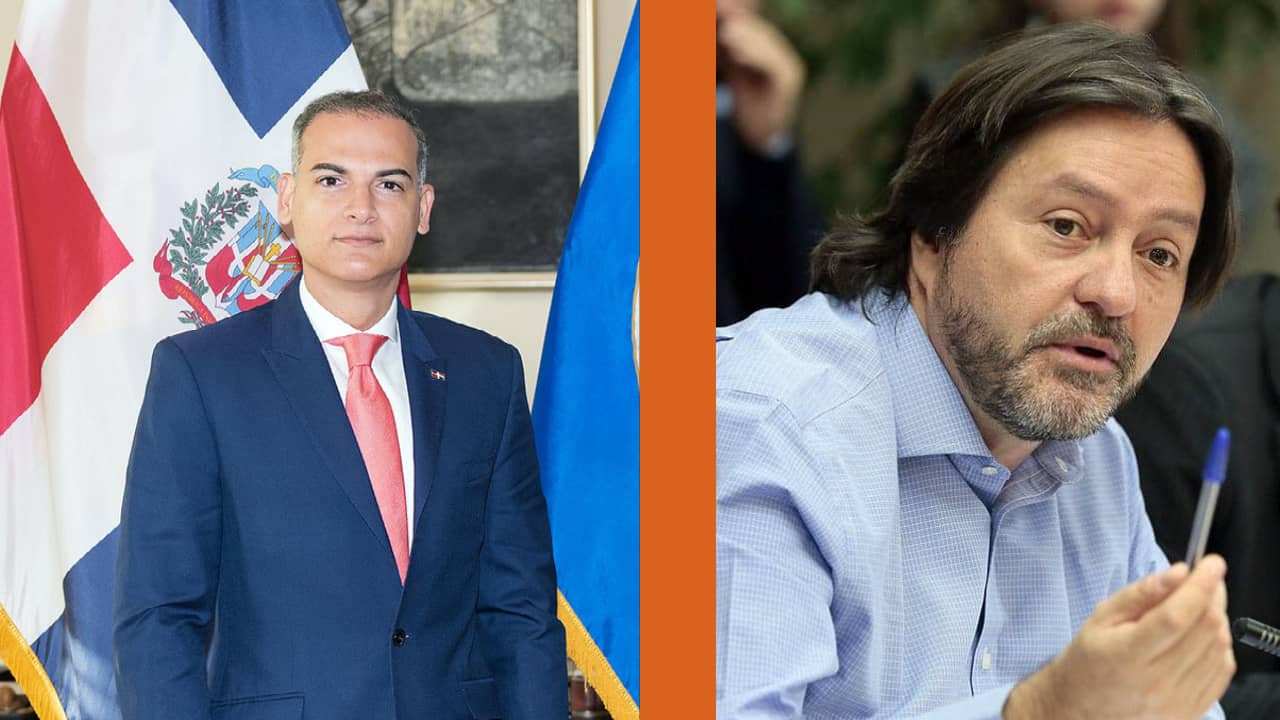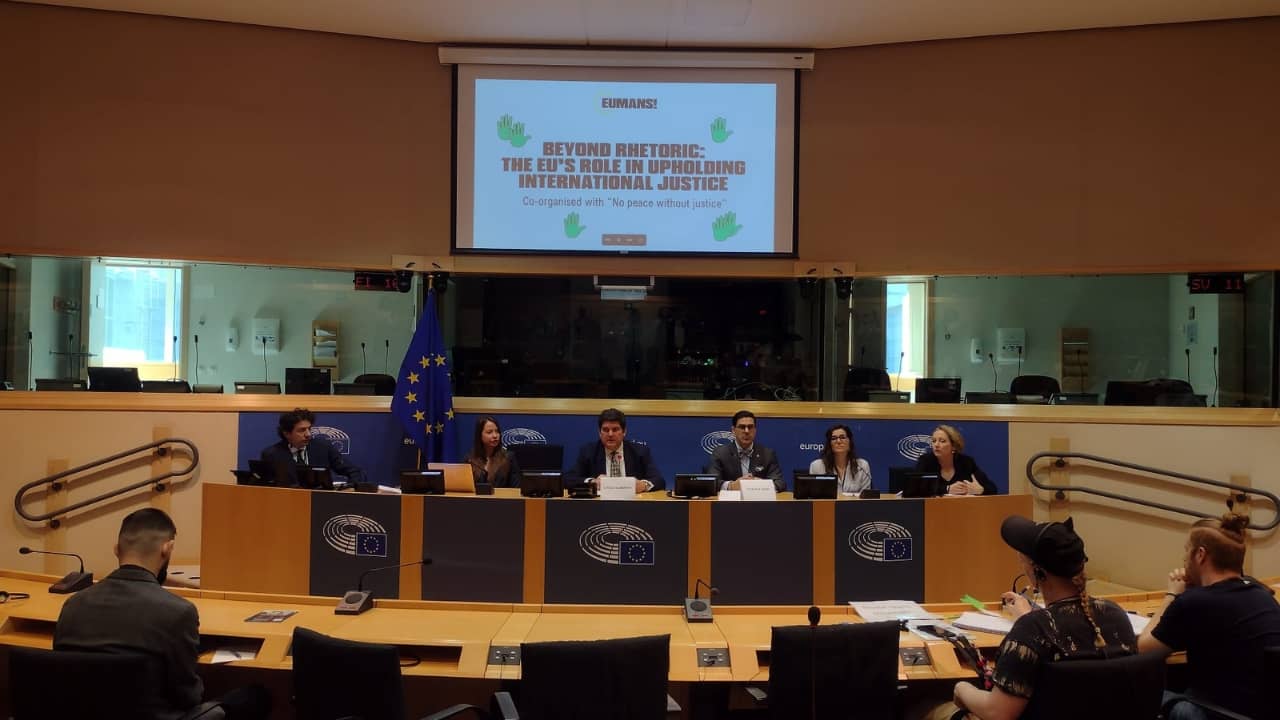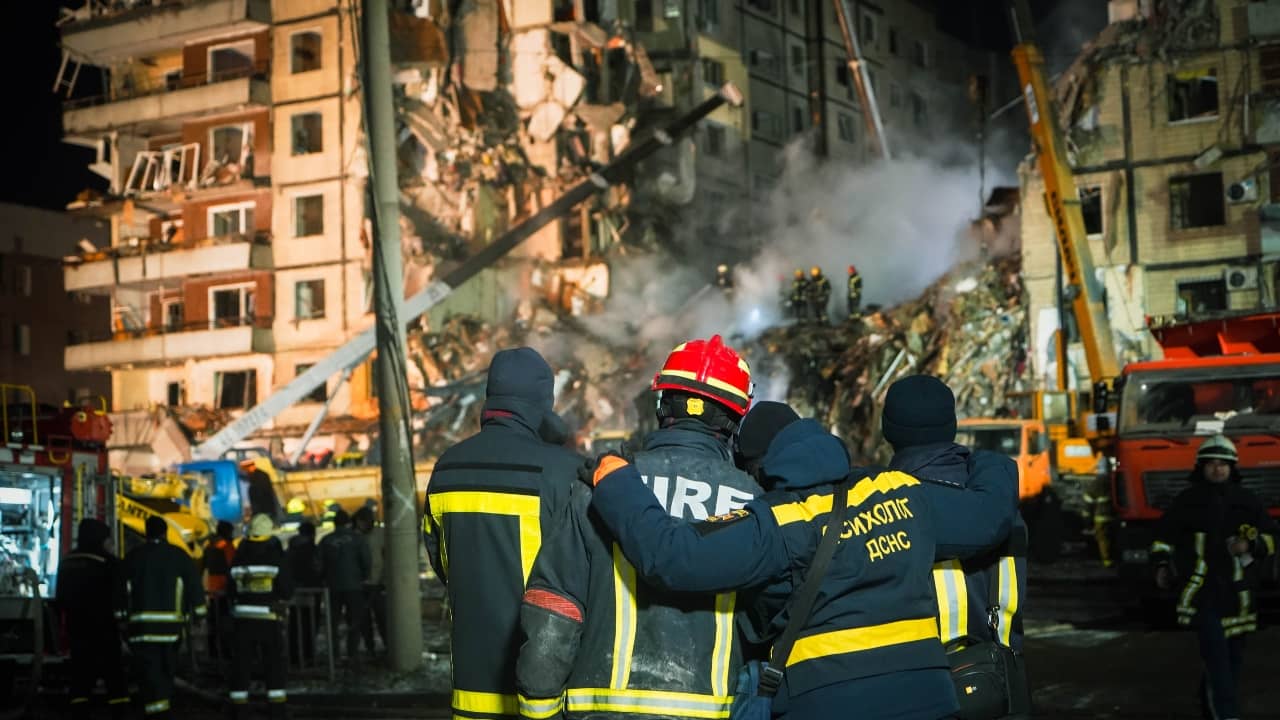
Washington, D.C./Santiago, Chile, 9 June 2021
On 3 June 2021, the Committee on Juridical and Political Affairs of the Organization of American States (OAS) held an important Technical working meeting to strengthen cooperation with the International Criminal Court. This event takes place every two years but could not be held in 2020 due to the Covid-19 pandemic.
Represented by one of its Board Members, Dip Tucapel Jiménez (Chile), Parliamentarians for Global Action (PGA) participated in the meeting with representatives of OAS member states, officials of the International Criminal Court (ICC), including the ICC Prosecutor Fatou Bensouda and the President of the Assembly of States Parties (ASP) Silvia Fernández de Gurmendi, and members of civil society organizations.
In his presentation, Dip. Jiménez highlighted that strengthening cooperation with the ICC includes two aspects. The first one is the political will to prioritize issues related to international justice. The second one is the consolidation of national legal frameworks. Parliamentarians play a fundamental role in democratic governance. The decisions that they take are not only national in scope but also regional and international. It is thus necessary to adopt procedural laws to allow national authorities to recognize and enforce requests emanating from the CPI. The Chilean legislator also reminded the distinguished audience that the fight against impunity is a fight for all and therefore it must be carried out in collaboration with all relevant actors, including civil society that counts on experts in the field and is close to the victims of international crimes.
The technical working meeting on cooperation is one of the last international ones of the ICC Prosecutor, considering that her mandate ends on June 15 of this year. The meeting focused on the fundamental role that States of the American continent have played in creating the only permanent international court. Additionally, emphasis was put on the obligation arising from the provisions contained in the Rome Statute to cooperate in judicial matters with the ICC and the importance of signing voluntary cooperation agreements on the arrest and surrender of those most responsible for the commission of atrocious crimes under ICC jurisdiction, relocation of witnesses and execution of sentences, among others.
This exchange was an opportunity to renew the commitment of the states of the continent and of the OAS in the fight against impunity. A historic step was taken during the high-level exchange between delegations and the panel. There was a positive change in the discourse that the United States incorporated as foreign policy towards the ICC since former President Trump came to power in 2017, which had entailed the unprecedented imposition of unilateral “sanctions” against the Prosecutor and another senior official of the ICC. With the new administration of President Joe Biden, the US representative at this meeting confirmed that the United States was willing to cooperate again with the ICC, given its important role to further accountability for international crimes. It was the first statement delivered by a US official during the current Administration in which the affirmation of a US constructive engagement with the ICC was not accompanied by caveats or reservations. The Prosecutor welcomed this statement while reaffirming the independence of her office and mandate.
During the OAS session, former ICC Judge Olga Herrera Carbuccia made a comprehensive presentation on all the aspects informing the cooperation regime between States and the ICC: While stressing that the Dominican Republic adopted a comprehensive legislation in 2018, she highlighted the essential role played by Parliamentarians for Global Action in the relevant decision-making process.
In February 2020, the Organization of American States (OAS) and Parliamentarians for Global Action (PGA) signed a Memorandum of Understanding and have co-organized an institutional dialogue on the Role of Parliamentarians as Defenders of Democracy in the Digital Era.
The documents of the session and the recording of the OAS event can be viewed here.




